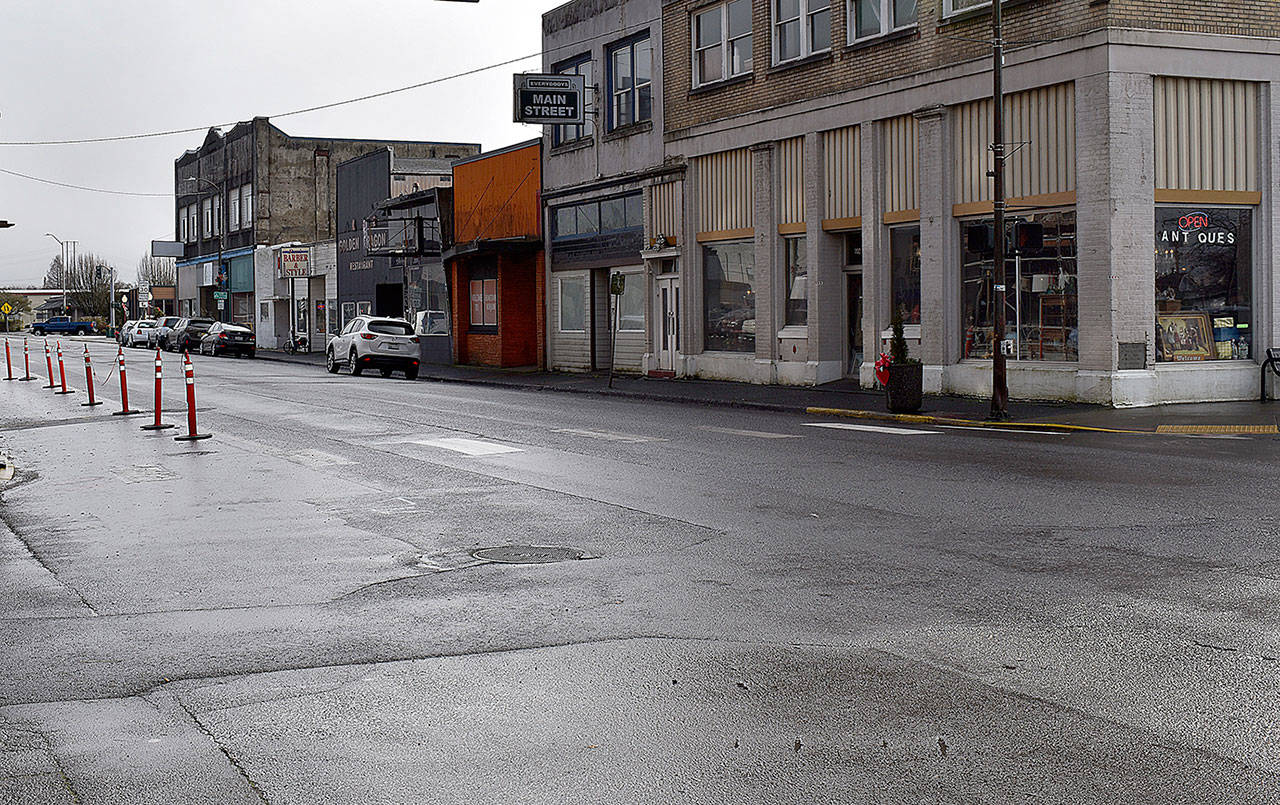A four-mile paving and sidewalks improvement project that starts on the west end of Hoquiam and goes along the main Highway 101 drag through Hoquiam and Aberdeen, ending at the Wishkah River, will start as early as Feb. 18, according to the state Department of Transportation, and continue through the spring and summer.
The work stretches from the intersection of Simpson Avenue and 5th Street in Hoquiam east to South H Street in Aberdeen at the west end of the Heron Street Bridge.
“This is a huge project benefit for the community, particularly the sidewalks,” said Hoquiam City Administrator Brian Shay.
Rognlin’s Inc. was awarded the bid for the $5.6 million project. The City of Hoquiam will use grants and existing funds to do its own sidewalk work alongside the paving project, as well as repave 23rd Street from Bay Avenue to Simpson Avenue.
“Any time there is a paving project on a state highway through a city like Aberdeen or Hoquiam, if there are ADA ramps, the state is responsible to pay for the ramps,” said Shay. “We will do the sidewalks in between.”
Grants for such projects are highly competitive, but Hoquiam was able to secure more than $500,000 in grant money to partially pay for the sidewalk improvements and 23rd Street paving.
“We’ve wanted to replace the sidewalks on the east side along the state highway for some time, and winning that grant was super competitive, so we were extremely excited when we knew we got it,” said Shay.
In Aberdeen, the city “has not proposed any work to coincide with WSDOT’s (paving project) this year on US 101 southbound,” said City Engineer Kris Koski. “WSDOT will be updating ADA ramps at intersections along the (project), which they are required to do.”
However, the City of Aberdeen’s annual transportation plan calls for more than $385,000 for sidewalks, and this year the city plans to add a sidewalk and bike lane to the east side of Boone Street from Edward P. Smith Drive to Harriman Street and a sidewalk to the east side of Evans Street from the Miller Junior High School exit north to MacFarlane Street, said Koski.
The Department of Transportation said the Hoquiam to Aberdeen project will include replacement of worn expansion joints on the Simpson Avenue Bridge over the Hoquiam River.
The work is expected to continue into the fall of 2020. There will be weekday, daytime shoulder closures as crews reconstruct ramps and sidewalks, at which times pedestrians may need to detour from one side of the roadway to the other.
The pavement repairs, including grinding of damaged pavement and laying down new pavement on both lanes, will be done at night when traffic volumes are lower. This will occur mid-summer and last about eight weeks; drivers can expect a single lane closure during this phase.
The sidewalk repair project in Hoquiam will cost a little more than $800,000. With the $500,000 in grant money, that leaves the city responsible for about $334,000, said Shay, paid for with money already set aside in the city’s budget for the project. About $117,000 of the $500,000 in grant money will go toward repaving 23rd Street in east Hoquiam, about $42,000 shy of the $160,000 cost of that portion of the project.
It’s possible the city could spend an additional $50,000 on street extensions during the state project.
“When they’re paving a state highway, each time they go through an intersection – say, 7th Street – they kind of go a little ways down 7th Street, and I mean a little ways, which is in their right-of-way,” said Shay. “That’s where they stop, and at some of those stopping points the streets are in bad condition, so we had them bid the cost of extending the paving at four different locations.”
That cost came to $160,000 for extensions at 7th, 6th, 23rd and 31st streets. Shay said the city did not award a bid for that work, but in December the City Council authorized up to $50,000 to address those locations at a later date.
The entire sidewalks and repaving project was delayed by a season because of lack of competitive bidders; there was only one bid, according to Department of Transportation spokeswoman Christina Werner, “with that bid being 88% higher than the engineer’s estimate. For financial reasons, we chose to postpone until this spring.”


